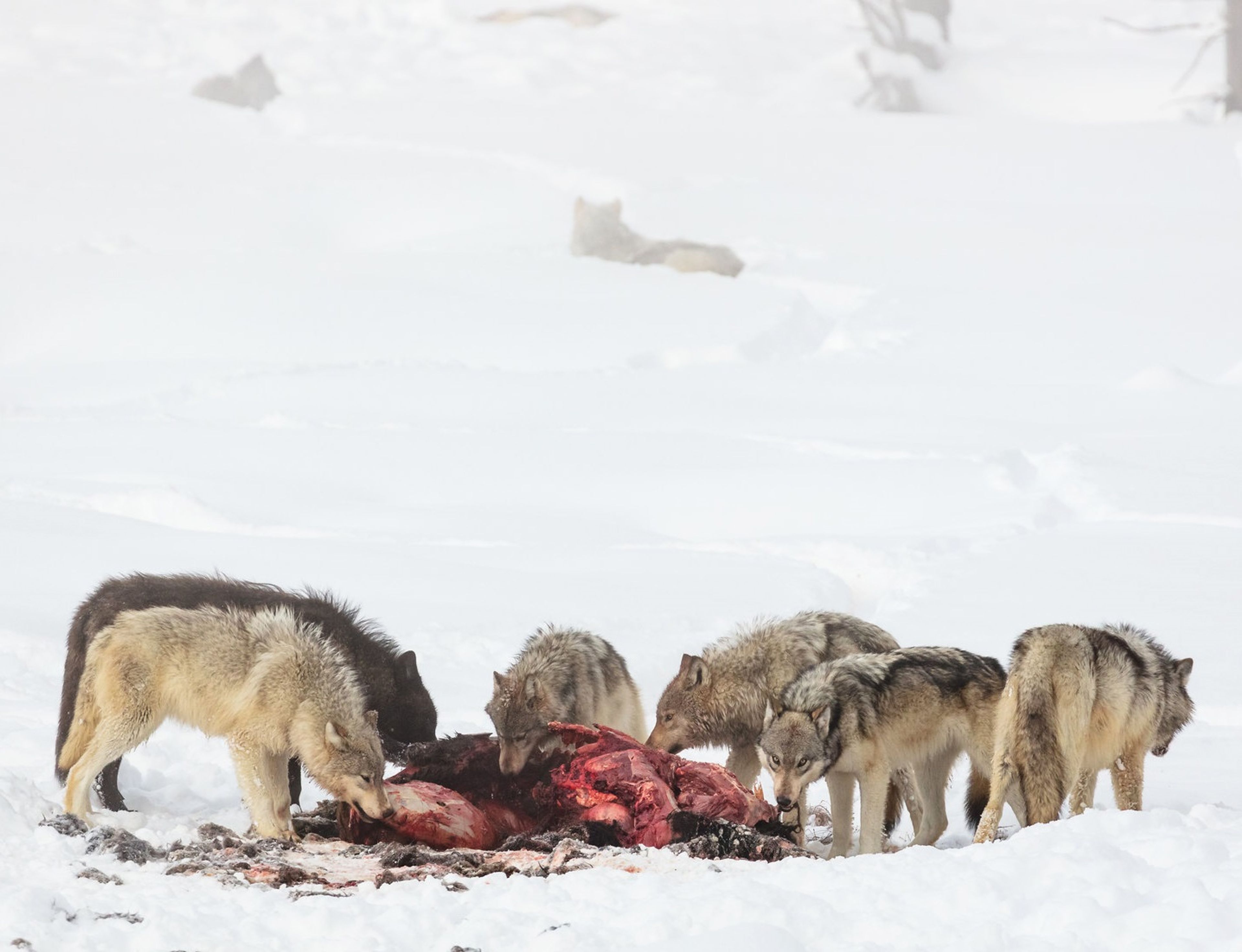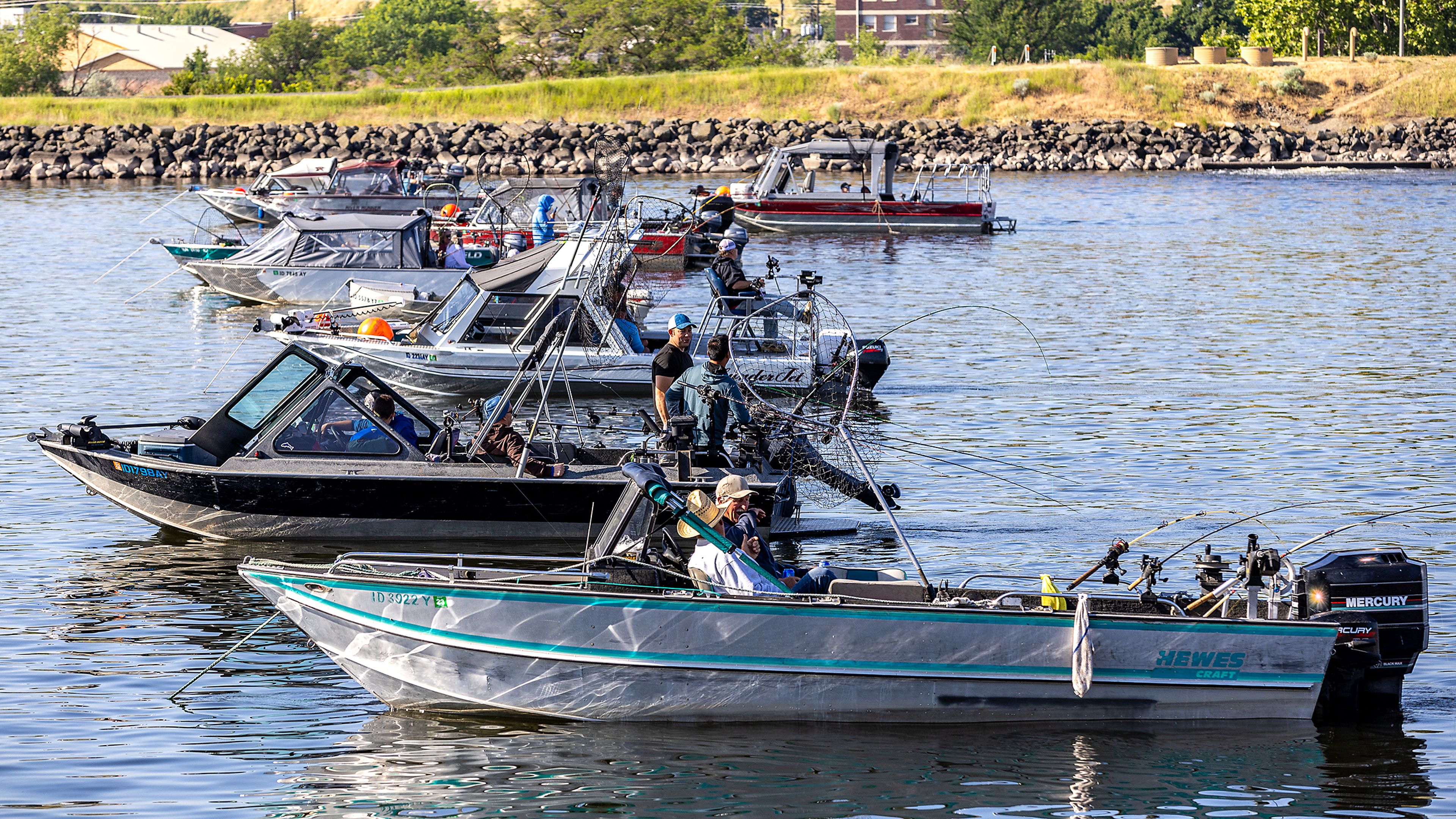Some hunts may go up in smoke
Massive wildfires in Washington and Idaho have state agencies scrambling to adjust as hunting seasons arrive
Some bow hunters in Washington could miss out on elk hunts in the Wenaha-Tucannon Wilderness because of fires there, but Idaho has no plans to cancel or alter any of its hunts near the many blazes plaguing the Clearwater region.
The Umatilla National Forest has closed the entire Wenaha-Tucannon Wilderness Area in the Blue Mountains, where a pair of branch-antler archery bull elk hunts are scheduled to start Sept. 5. Paul Wik, district wildlife biologist for the Washington Department of Fish and Wildlife at Clarkston, said it looks probable hunters who hold the lottery-awarded permits won't be able to hunt.
"At this point, we are assuming that the wilderness will not open back up for public entry in time, unless the weather changes," he said.
The department is working to restore special permit preference points to people who drew permits if they are not able to use them. Washington has a system where hunters build up points over time that give them more favorable drawing odds. Wik said if the area remains closed and the hunt has to be canceled, those holding the permits would relinquish the permits and likely be able to use the preference points in next year's drawing.
"We will reinstate points they used to draw the tags," Wik said. "We are still working through that process at the headquarters level."
Right now, Wik said hunters with bull permits for the Wenaha West and Wenaha East hunts cannot access the hunting areas. Beyond that, he said other hunters could be affected to some degree by closures around the Grizzly Bear Complex Fire. He said the department is assessing those issues day-by-day as seasons approach.
"It will definitely impact some hunters," he said. "How many at this point in time - things are going to be very dynamic over the next five to 10 days."
In Idaho, many archery hunts for deer and elk open Monday. Most rifle seasons for deer and elk don't open until Oct. 10, but some elk hunting areas - like the Selway Zone - open Sept. 15. George Pauley, regional wildlife manager for the Idaho Department of Fish and Game at Lewiston, said there are no general hunts or controlled hunts that will be totally inaccessible because of fire closures. But he said there are some areas of the Nez Perce-Clearwater National Forest that are closed, and most industrial private timberland owned by companies like Potlatch Corp. and Bennett Lumber Co. is closed to public entry. Because none of those closures totally eliminate hunting access, Pauley said the department has no plans to alter seasons or provide refunds to tag holders.
"There are certainly some areas that are closed, but we don't have any instances where an entire hunt or unit is closed," he said.
Pauley has heard a number of rumors circulating about closed or altered hunting seasons.
"Those are all just rumors. Seasons have not been altered at all," he said.
Because there are relatively few archery hunters, compared to rifle hunters, Pauley said they will be able to find open areas without overcrowding. By the time the general rifle seasons open, he said it's likely that many of the closed areas will have reopened.
"When we get to the rifle opener, hopefully we will get some rain or some other form of relief," he said.
The department has not received any reports of large numbers of animals dying in area fires. He said animals in areas that have been burned will likely migrate to unburned areas.
"Generally, they are going to leave the fire area, particularly when there is not a lot to eat," he said. "I suspect there is quite a bit of that going on around some of the fires."
Both Idaho and Washington wildlife managers have placed fire restrictions on lands owned by the state agencies, and similar restrictions are in place on other state and federal lands.
On land owned by the Idaho Department of Fish and Game and the Washington Department of Fish and Wildlife, restrictions are in place that forbid the use of campfires, driving off road or operating chain saws and other power tools. More information is available at https://fishandgame.idaho.gov/content/fire for Idaho and http://wdfw.wa.gov/news/jun1915b/ for Washington.
Information about trail, road, area closures and fire restrictions on the Nez Perce-Clearwater National Forest is available at 1.usa.gov/1Lv3rWA. Information on trail, road and area closures as well as fire restrictions on the Umatilla National Forest can be found at http://www.fs.usda.gov/umatilla.
---
Barker may be contacted at ebarker@lmtribune.com or at (208) 848-2273. Follow him on Twitter @ezebarker.










